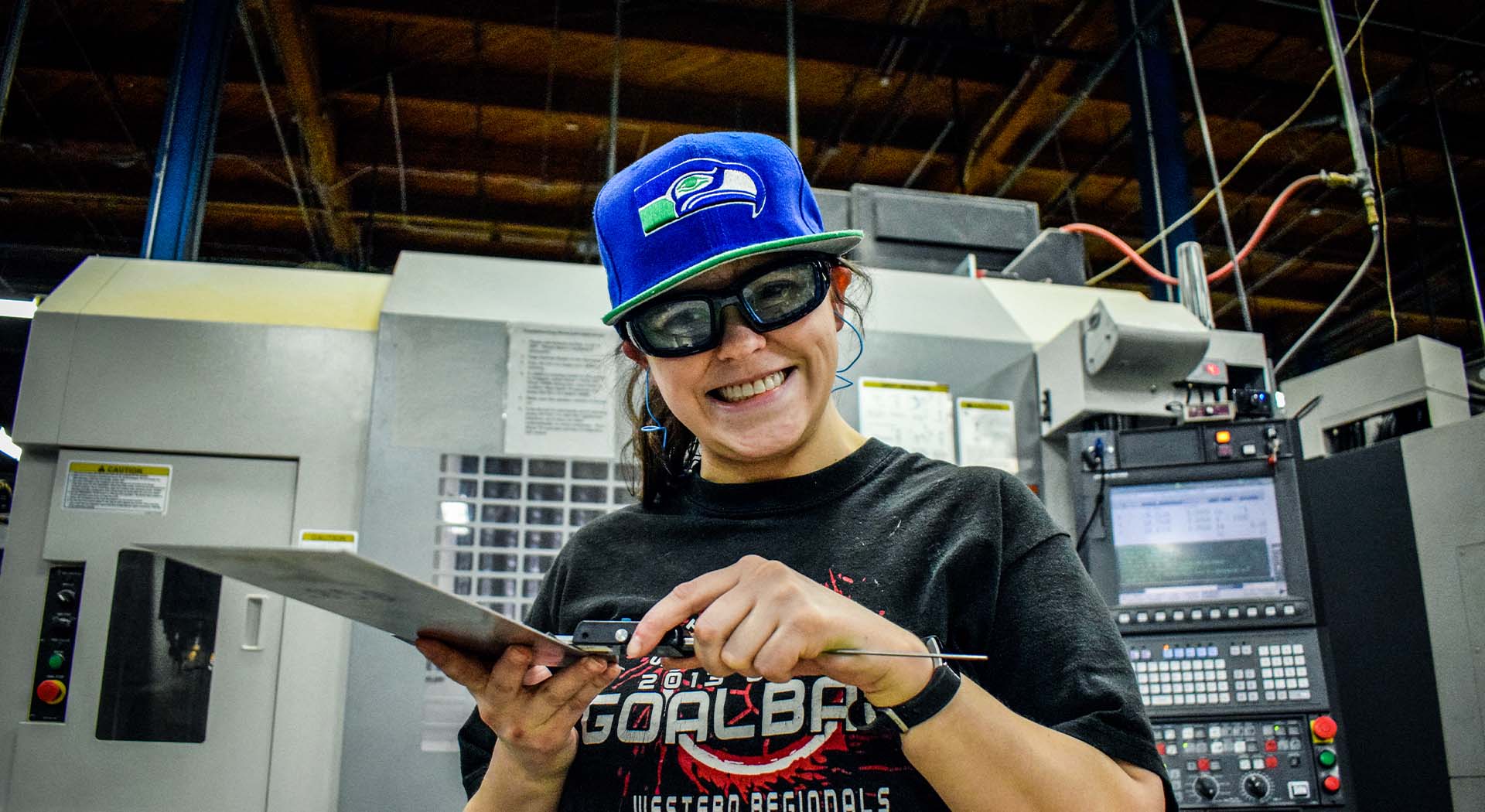*This is a Washington State average for this occupation. Wage rates vary by employer, industry, experience and location.
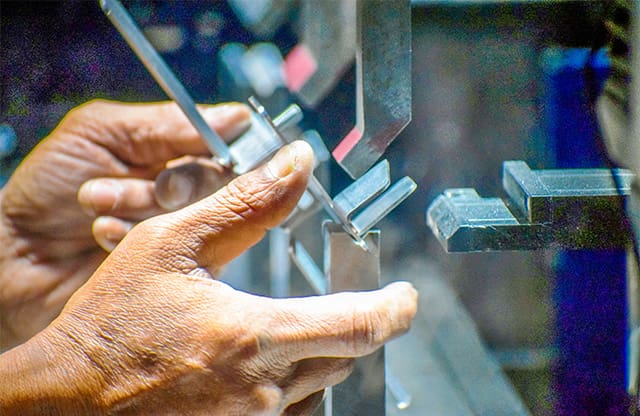
What is a Precision Metal Fabricator?
A precision metal fabricator cuts, bends, forms and assembles precise metal parts. Like piecing together a puzzle, the fabricator produces specialized components at very high tolerances, for products such as medical devices and aerospace parts.
Precision Metal Fabricators:
- Read blue print drawings to know how to correctly cut, bend, form and assemble the metal part
- Calculate dimensions and tolerances using math and instruments such as micrometers and calipers
- Fabricate the part using machine tools such as punch press, press brakes, saws, bending and forming tools, shapers or grinders
- Set up and program high-tech cutting machines to make the part
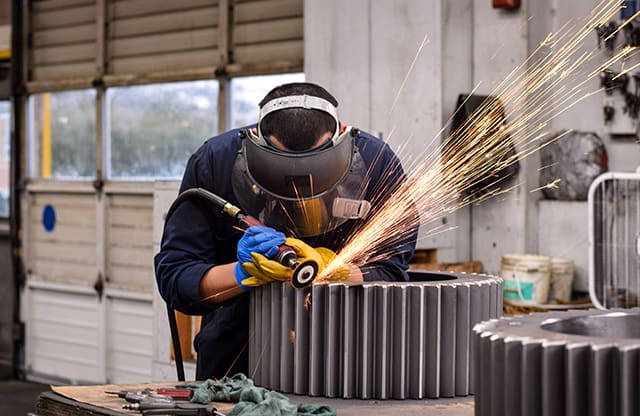
What are the Benefits of Becoming a Precision Metal Fabricator?
Precision Metal Fabricator is an intermediate apprenticeship occupation that reinforces fabrication skills along with blueprint reading, machine tool use, and precision measuring.
Upon completion of a Precision Metal Fabricator apprenticeship, you will receive a nationally-recognized journey-level credential and can move onto more advanced occupations such as Machinist, Quality Control Inspector, CNC Programmer, and a Shift Lead Supervisor..
As a Precision Metal Fabricator, you will enjoy a long-term career with a good salary, job advancement opportunities, and the chance to work with your hands and cutting-edge technology.
Step to Becoming an Apprentice


6 Steps to Becoming an Apprentice
Get Hired by a Participating Employer AJAC Partners With
Receive Participation Approval from Your Employer
Sign an Apprenticeship Agreement with AJAC
Enroll in AJAC’s Apprenticeship Classes Each Quarter
Log and Submit Your OJT Hours Monthly
Receive a Nationally-Recognized Journey-Level Certification from L&I
How Much Can I Earn?
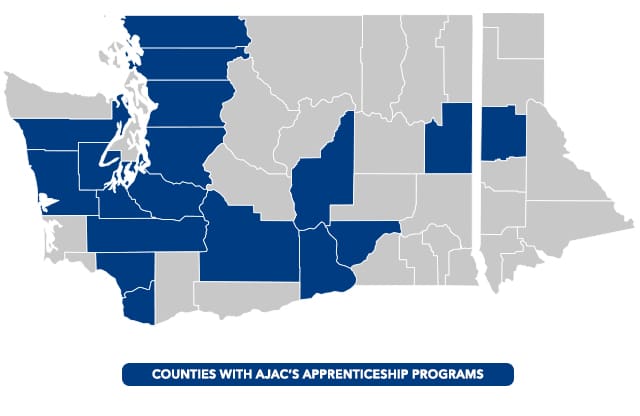
Where Will I Work?
AJAC has partnered with 300+ advanced manufacturers to provide supervised, structured, paid on-the-job training.
AJAC apprentices can only work for companies that agree to hire them and place them into the program.
Each company has their own methodology for who they select as an apprentice.
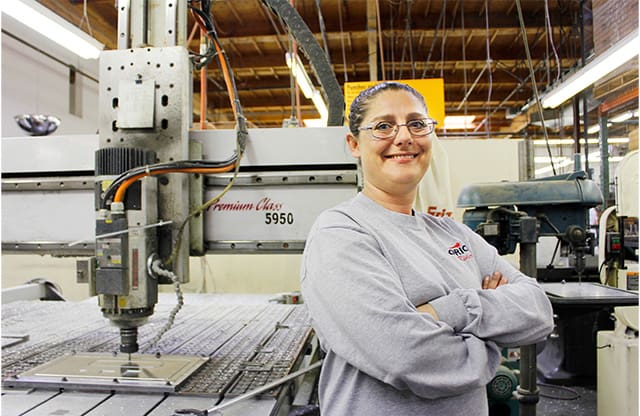
Where Are Classes Held?
Classes are held one night a week, typically on a Tuesday, Wednesday, or Thursday from 5:00 pm to 9:00 pm.
AJAC’s apprenticeships classes are structured for both online learning or in-person learning. Depending on the specific class you are taking, you may be required to complete it online or in-person.
In-person classes are held either a local community/technical college, high school, or skills center.
Apprenticeship Classes
Precision Metal Fabricator apprentices take 8 college-level classes. Each class consists of 50 hours of lecture and/or practical application. Upon completion of each class, apprentices will receive 5 college credits.
As a registered apprentice, you automatically receive 50% reduced tuition. Over half of AJAC’s partnering employers elect to pay for their apprentice’s tuition, making the entire apprenticeship free-of-cost.
Currently, each class costs $380 out-of-pocket.
This course provides an overview of the topics relating to precision metal fabrication, its major tools, and skill sets. Students will learn what is involved in the production of precision sheet metal components for industries in accordance with written instructions, blueprints, and computer-aided design (CAD) drawings.
This course teaches computer numerical control (CNC) setup and operation, with a special focus on the manufacturing processes using the shear, CNC punch press, and deburring.
In this course students will become proficient in both the theory and practice of using the Press Brake machine, with emphasis on using the press brake safely.
Comprehensive understanding of outside processes and the properties of materials that are governed by industry standards.
Review of basic arithmetic, basic algebra application, based on geometry, right angle trigonometry, oblique angle trigonometry, and right angles.
Learn to read and interpret engineering drawings and schematics, as well as practice basic drafting. Drawings studied in this class will come both from the text and from industry, and will include machining, fabrication, assemblies, and fluid power systems (only for Automation/Maintenance program).
Measuring and inspection of size, position, form, surface finish and orientation.
This course will provide apprentices with hands-on training in computer-aided design (CAD) and manufacturing (CAM) techniques and technologies.
On-the-Job Training Competencies
The table below is a schedule of tasks and hours designed as a guide. The 4,000 hours will be completed over the course of the apprenticeship. The apprentice shall be instructed and trained in all operations and methods customarily used on the various machines. Each company will adhere to the schedule as closely as facilities will permit in order to provide the apprentice with well-rounded experience and practice on all relevant equipment and processes in the shop.
| OJT Competency | Approx. OJT Hours |
|---|---|
| Bench Work | 100 |
| Sheet Metal Shop Basics | 1,100 |
| CNC Setup and Operations | 800 |
| Punch Press | 500 |
| Press Brake | 500 |
| Lasers and Cutting Technology | 200 |
| Inspection | 400 |
| Materials and Properties of Bending Metal | 200 |
| CAD / CAM | 200 |
| TOTAL HOURS | 4,000 |
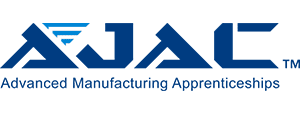
Launch Your Career Today!
Submit your information using the link below. After we receive your information, an AJAC representative will contact you for next steps. Please note, this is not an official application to become an apprentice. After a partnering employers agrees to enroll you in the program, you will officially apply and enroll at that time.
